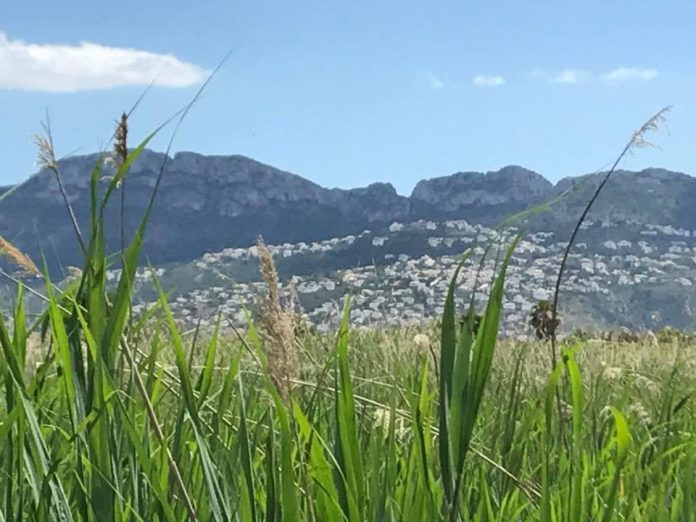An ancient and obsolete sewerage system on a Costa Blanca urbanisation has caused problems for residents for many years. But now evidence is emerging of deliberate and prolonged pollution from this system which is effecting local residents, a nearby nature park and rice fields.
This problem is but one of many involving the large mountain urbanisation of Monte Pego, first developed in the 1970’s which has now grown to nearly 1,500 homes. For the last 15 years a legal dispute between the Town Halls, led by Pego, and the Developers, has prevented the urbanisation becoming public and receiving basic services from Pego, Rafol and Denia Town Halls (despite sumas being paid all that time).
The infrastructure suffered badly from this neglect, including the sewerage system, which was never connected to Pego Town’s main system as originally planned. The reason given was the legal dispute.
Instead the urbanisation has relied on a waste treatment plant and a series of septic tanks. As the urbanisation has grown the capacity of this small, old and inefficient plant has been unable to cope with the amount of waste.
Since 2010, or for longer, the overflow from the treatment plant has been sent into a natural gully on the mountain, the Barranc de Batlle, that feeds into the Marjal Nature Park and the rice fields beyond. This has been confirmed by independent analysis of water samples.
If this is not bad enough, Pego Town Hall have known of this pollution, yet refused to solve the problem, blaming that legal dispute. Indeed, since 2010 they have paid an annual fine to the water authority of tens of thousands of euros. They refuse to disclose the full amount paid over the years, but it is public money that could have been spent on the obvious solution.
Pro Monte Pego, the Residents Association on the urbanisation, frustrated by this intransigence of the Town Hall and deeply concerned for the environment, felt that their only course of action was to petition the EU parliament.
This was done in Summer 2017, and recently the Association has received the news that the petition has been accepted, and an investigation will now follow, in respect of public health, the environment and food safety.
A spokesperson for Pro Monte Pego, on hearing this news said “the fact that the EU Parliament is investigating shows how serious this is, and we hope as a result the environment will be protected, residents will be protected and we will get a sewerage system fit for purpose. It is wonderful news!”
Both the urbanisation and its beautiful surroundings do not deserve this wilful neglect and pollution. Perhaps the legal stranglehold will finally, after 15 years, be broken once this scandal is investigated.





